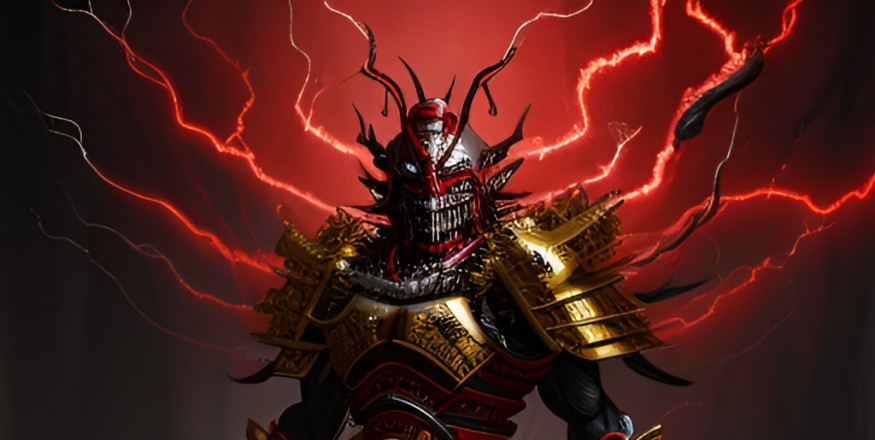 x
x
Fyodor continued to watch as the villagers passed by, carrying the coffin of the departed elder, Sora. As they walked down the street, Fyodor realized that he didn't know the funeral customs of the Izanese people. Curiosity getting the better of him, he decided to follow them.
The villagers led Fyodor down a mossy-covered stone path and disappeared behind some trees. Fyodor quietly followed them and watched as they placed the coffin on a large pile of wood. One of the villagers said an Izanese prayer, and soon the wood was set on fire. The coffin was consumed by flames, and the villagers stepped back, talking about Sora and her kind nature. Some of them were crying.
Hours passed, and all that was left were ashes. One of the villagers grabbed a shovel and scooped up the ashes, placing them in a large jar with Sora's name, date of birth, and date of death. They added a few kind words about her and placed the jar next to others, some of which were very old and lightly covered with dark green moss.
Fyodor watched as the villagers carefully sifted through the ashes to remove any large pieces of bone or debris. Once the ashes were fine and powdery, they were placed into a decorative jar made of ceramic. The jar was personalized with engravings and other decorations, making it a unique and special resting place for Sora's ashes.
Before the jar was sealed, the villagers placed a decorative lid on top. The lid was also personalized with engravings and other decorations, and was made of the same ceramic material as the jar. Once the lid was in place, the jar was sealed, ensuring that Sora's ashes would remain undisturbed.
The jar was then placed in the village's graveyard, which the Izanese people called "Mizuko no Chi," or "the land of the departed." Sora's jar was set next to the very old ones that were lightly covered with dark green moss. The graveyard was a peaceful and serene place, surrounded by tall trees and a gentle breeze that carried the scent of flowers.
Fyodor couldn't help but feel a sense of reverence for the tradition of honoring the departed. As he looked at the jars, he wondered how many others had been placed there over the centuries. He realized that even in death, the Izanese people held their loved ones close and honored their memory.
As Fyodor stood there, he noticed that some of the villagers were placing offerings on the graves of their loved ones. They left small items like flowers, food, and incense, as a way of showing their respect and love for those who had passed on. Fyodor was moved by this gesture and decided to do the same for Sora.
He went to the nearby market and bought some flowers and incense. He carefully placed them on Sora's grave, and said a silent prayer for her. As he stood there, he felt a sense of peace and comfort, knowing that Sora's memory would be honored and cherished by the people of the village.
Fyodor realized that the Izanese people had a deep respect for the cycle of life and death. They believed that death was not an end, but a transition to another realm. They honored their departed loved ones by keeping their memory alive through stories, offerings, and traditions.
As he left the graveyard, Fyodor felt a sense of gratitude for having witnessed this beautiful and meaningful tradition. He knew that he would never forget the lessons he had learned from the Izanese people about honoring the departed.
Fyodor walked down the street and noticed that a new shop was being built. He watched as the workers hammered and sawed, constructing the walls and roof. Fyodor couldn't help but wonder what kind of shop it would be. He decided to keep an eye on it and see if he could figure it out.
Days turned into weeks, and the shop began to take shape. Fyodor watched as the workers painted the walls and installed shelves and display cases. He saw that the shop had a large window in the front, allowing customers to see inside. However, the window was covered with a thick curtain, making it impossible to see what was inside.
Fyodor became curious about the mystery of the new shop. He wondered what kind of merchandise would be sold there. He walked by the shop every day, hoping to catch a glimpse of what was inside, but the curtain remained closed.
One day, Fyodor saw a sign being hung above the door. The sign was written in Izanese, but Fyodor recognized the symbol for "shop." He was excited to finally learn what kind of shop it was.
As he got closer, he saw that the sign read "Yume no Kura," which meant "Dreams' Store." Fyodor was intrigued by the name and wondered what kind of dreams the store would sell.
Days turned into weeks, and the shop was finally ready for business. Fyodor watched as the owner, a friendly Izanese woman, opened the door and welcomed customers inside. He decided to go in himself and see what the Dreams' Store had to offer.
Inside, Fyodor saw that the shop was filled with all kinds of items. There were books, candles, incense, crystals, and other spiritual and mystical items. The shelves were lined with dreamcatchers, tarot cards, and other tools for divination. There were also paintings and sculptures of mythical creatures, like dragons and unicorns.
Fyodor was amazed by the variety of items in the Dreams' Store. He realized that the shop catered to those who were interested in spirituality, self-discovery, and personal growth. The owner, a wise and knowledgeable woman, explained to Fyodor that the shop was a place where people could find inspiration, guidance, and tools to help them achieve their dreams.
Fyodor was impressed by the Dreams' Store and the owner's passion for helping people. He realized that the shop was more than just a place to buy items; it was a place where people could connect with their inner selves and find the courage to pursue their dreams.
As Fyodor left the shop, he felt inspired and hopeful. He realized that the Dreams' Store was a place where people could find the tools and support they needed to make their dreams a reality. He knew that he would return to the shop, not just to buy items, but to connect with the owner and the community of dreamers who frequented the store.
The Mystery of the New Shop had been solved, and Fyodor had discovered a place where dreams came true.






















